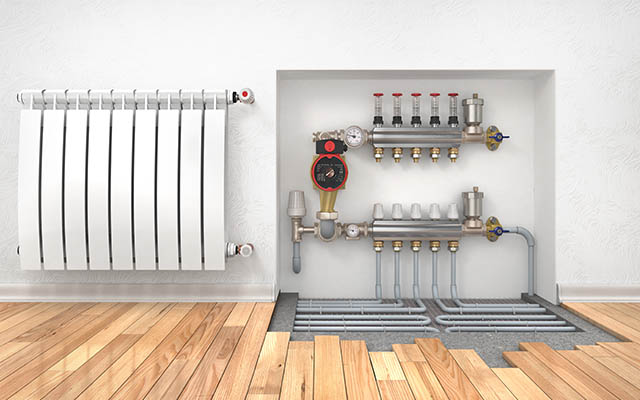
As homeowners, we all want to be as comfortable as possible in our homes, especially during the colder months. There are various ways to heat our homes, but hydronic heating mornington peninsula has been gaining popularity due to its numerous benefits. In this article, we will discuss the benefits of hydronic heating and why you should consider it for your home.
What is Hydronic Heating?
Hydronic heating, also known as radiant heating, is a heating system that uses water to transfer heat throughout your home. It involves running hot water through pipes installed in your floors, walls, or ceilings to heat your home. This type of heating is considered to be one of the most energy-efficient and comfortable ways of heating your home.
Benefits of Hydronic Heating
Energy Efficiency
Hydronic heating is considered to be one of the most energy-efficient ways to heat your home. Unlike traditional heating systems that heat the air, hydronic heating heats objects and surfaces, which in turn radiate heat to the surrounding air. This means that less energy is required to heat your home, resulting in lower energy bills.
Comfort
Hydronic heating provides a comfortable and consistent temperature throughout your home. Unlike traditional heating systems that create hot spots and cold spots, hydronic heating provides a uniform temperature throughout your home. Additionally, hydronic heating doesn’t create any drafts, which means that there are no cold air currents blowing around your home.
Noiseless
Hydronic heating operates silently, which means that you won’t be disturbed by any noise. Traditional heating systems such as forced air systems can be noisy, especially when the blower is running. With hydronic heating, you won’t hear any sounds, making your home more peaceful and relaxing.
Low Maintenance
Hydronic heating requires very little maintenance compared to traditional heating systems. Once the system is installed, it requires very little attention, and there are no filters to replace or ducts to clean. This means that you will save money on maintenance costs, and your system will last longer.
Durability
Hydronic heating systems are known for their durability. The pipes used in the system are made of durable materials such as copper or PEX, which means that they can last for decades. Additionally, since the system operates at lower temperatures than traditional heating systems, there is less wear and tear on the system, resulting in a longer lifespan.
Versatility
Hydronic heating can be installed in various parts of your home, including floors, walls, and ceilings. This means that you can customize the system to fit your specific needs. Additionally, hydronic heating can be used in various types of homes, including new homes and older homes.
Health Benefits
Hydronic heating can also provide health benefits. Traditional heating systems can circulate dust, allergens, and other particles in the air, which can exacerbate allergies and respiratory problems. Hydronic heating doesn’t use forced air, which means that there is less circulation of dust and allergens in your home, resulting in a healthier living environment.
Eco-Friendly
Hydronic heating is an eco-friendly option for heating your home. Since the system uses water to transfer heat, there are no emissions or pollutants released into the air. Additionally, since the system is more energy-efficient, it results in lower greenhouse gas emissions.
Why You Should Consider Hydronic Heating for Your Home
If you’re looking for a more comfortable, energy-efficient, and eco-friendly way to heat your home, hydronic heating is the way to go. Hydronic heating provides a consistent temperature throughout your home, operates silently, and requires little maintenance.






